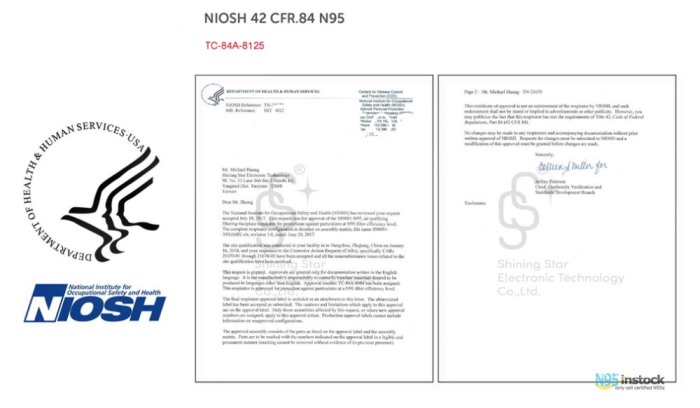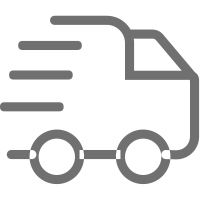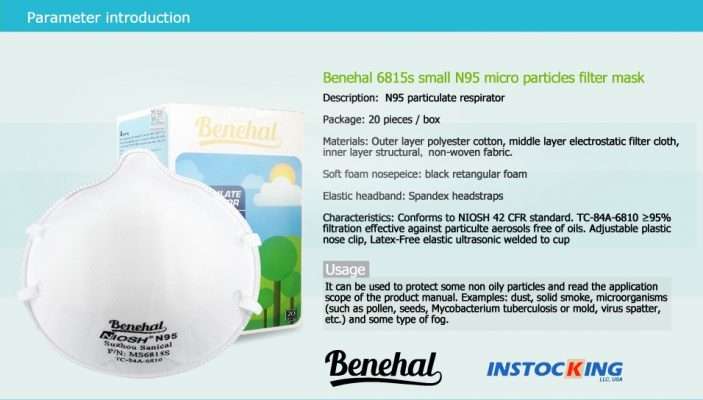One way to tell whether or not your N95 mask is a legitimate, NIOSH-approved respirator is by searching it in the NIOSH certified equipment list (CEL). The most important thing to look for about the N95 mask in particular is whether or not the respirator has been tested and certified by NIOSH. NIOSH-certified respirators, such as N95 masks, will have a certification tag either on the face shield or inside the package, with the abbreviated certification on the face shield as well. Before face-piece filters–a fancy term for masks that includes N95s–can be used at any workplace, they have to have a NIOSH certification.
While NIOSH tests and certifies N95 masks, it does not endorse KN95 masks, KF94 masks, or any other respiratory products that can get international certification. Unfortunately, because of the high demand for N95 respirators, some masks are being marketed and sold incorrectly as being approved by NIOSH. Fake or Counterfeit N95 Face Masks are products falsely marketed as being approved by NIOSH, a certification required for legitimate N95 respirators, which are allowed for use as personal protective equipment (or PPE). If a dealer or manufacturer claims a KN95 face mask is NIOSH-approved, then you are likely dealing with a fake product.
According to the CDC, over 60% of the KN95 masks that are sold on the country market are fake, and Americans report similar problems with the more protective N95 masks, which are regulated and approved by the National Institute of Occupational Safety and Health (NIOSH). Because the N95 masks approved by NIOSH are no longer scarce, the CDC’s guidance suggests people can opt to wear NIOSH-approved N95 masks instead of cloth face coverings for personal use. This N95 mask, which is FDA- and NIOSH-approved by Makrite, is designed to filter at least 95% of airborne particles and provides protection against aerosols that do not contain oils or volatile liquid particles. By definition, an N95 respirator that is correctly fitted and worn, certified by the National Institutes of Health, filters out 95 percent of airborne particles.

N95 respirators filter up to 95 percent of particles in the air if they are approved by NIOSH and can achieve a proper fit. Unlike cloth masks, N95, KN95, and KF94 respirators are made from materials that have electrostatic charges, which actually attract those particles when they are floating and keep you from breathing those particles, notes Dr. Abramarah Kalan. The N95 mask is a respirator that filters air that you are breathing (rather than simply trapping what you are breathing out, like a regular mask). Before the mask is approved by NIOSH, it goes through the agency Respirator Approval Program, which makes sure that face masks and respirators comply with minimum standards for construction, performance, and breathing protection.
You can also refer to the manufacturer’s approval numbers on an N95 mask to verify that it is listed in NIOSHs certified equipment lists. From there, you can type in the approval number for testing and certification of your mask (e.g., TC 84A-XXXX), which should be printed on the N95 mask, according to the CCDC guidelines. Before purchasing a mask, CDC encourages users and manufacturers to check the masks for counterfeits on its webpage, Counterfeit Respirators/Misrepresentation of NIOSH Approval.




